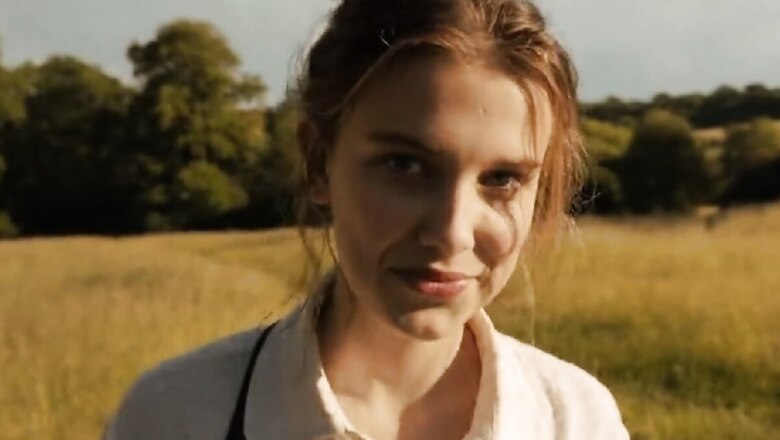
views
Enola Holmes
Cast: Millie Bobby Brown, Henry Cavill, Sam Claflin, Louis Partridge, Fiona Shaw
Director: Harry Bradbeer
When the trailer of Enola Holmes dropped, people responded with enthusiasm because the film looked like a fast-paced and fun mystery starring our favourite actors in fancy Victorian outfits and British accents. However, as it turns out, that was only the tip of the iceberg. While all of it is true, the Netflix film is structurally and tonally much different. It is layered, complex and extremely political. That is the best thing about it.
Based on the book The Case of the Missing Marquess: An Enola Holmes Mystery by Nancy Springer, the cinematic adaptation is more like an origin story of a young female detective in the making. Enola wakes up on her 16th birthday to find her mother gone, leaving her with only her birthday gift. When her brothers Mycroft and Sherlock Holmes come back to the countryside after many years to take charge of the sutuation, they are shocked to find their little sister is a “wild child.” They react differently to her situation though, while Sherlock is amused, Mycroft is disgusted and at ones tried to clip her wings. He makes arrangements to send her into a boarding school, where she will become “a lady.”
Young Elona, whose name spelled backwards is ‘Alone’ is raised by her mother to be self-sufficient. However, she still feels abandoned by her. She expects Sherlock to find her mother and stand up to Mycroft and when he doesn’t, she takes the matter into her own hands. After deciphering “clues” left by her mother, she runs away from home to London.
Here is where the story starts getting complicated. Enola meets a runaway Marquess, who is being forced by his family to enlist in the army. The young man himself has had a near death experience and now wants to live his life on his own terms. While Enola is not eager to help him at first, she finds out his life is in danger and a hitman is out to get him.
Enola Holmes story begins in London, and her life does too. In her mother’s pursuit, she learns a lot of things, about her mother, about her new friend, but most importantly herself. When she realises that her mother is in a fight much bigger than their own family, she decides she needs to help save the Marquess’ life instead.
There are many nuggets of wisdom in the field. From Enola’s former martial arts teacher, telling her to “be tough, live your life. Not because you’re looking for someone, but because you’re looking for yourself,” to her calling Sherlock’s apolitical stance being a result of his privilege. The film is unapologetically feminist and powerful without being preachy. It’s never telling you, but showing you, using humour, emotion and, well, good ol’ detective skills.
Coming to the performances, nobody ever expects a bad job by Millie Bobby Brown or Henry Cavill. Millie does a lot more talking here than in Starnger Things, and even without the glitz of superpowers and tragedies, Millie manages to be charming, hilarious and yet heartbreaking. It is also really important to note that she turned producer at the age of 16 with this film, which if you ask me, is a real Enola Holmes move.
There will most certainly be comparisons of Henry Cavill’s Sherlock with Benedict Cumberbatch and Robert Downey Jr’s. Even when he is not the centre of attention here but makes you want to see more of him in action. Also he brings about the duality in nature of the detective, reminding you of not any previous adaptations but the original books itself.
Sam Claflin is perfectly cast as the stuck-up older brother whose presence makes your anxiety work. Even though he doesn’t look like Henry Cavill’s older brother initially, he makes it up later. Fiona Shaw is so great as the annoying patriarchal head-mistress, but also so hilarious when she acts all squirmy around Mycroft on whom she has a huge crush.
Louis Partridge is quite a discovery, and a lot of the film rides on his shoulders too. Him and Millie play off of each other quite well, in a protector-protectee dynamic we haven’t seen on screen before. Helena Bonhan Carter is criminally underused, as required by the script, but you want to see more of her each time she is on screen.
However, one scene-stealer is Susie Wokoma as Edith. She is given a really short role, but it is extremely powerful. The film wouldn’t have been the same without her.
Enola Holmes also couldn’t have come at a better time. While the world deals with one global socio-political crisis after the other, this film gives a nice reminder that human beings have always fought for the right, and will continue to do so. Even when things take time to change, the future will be better.
Rating: 3.5/5
















Comments
0 comment